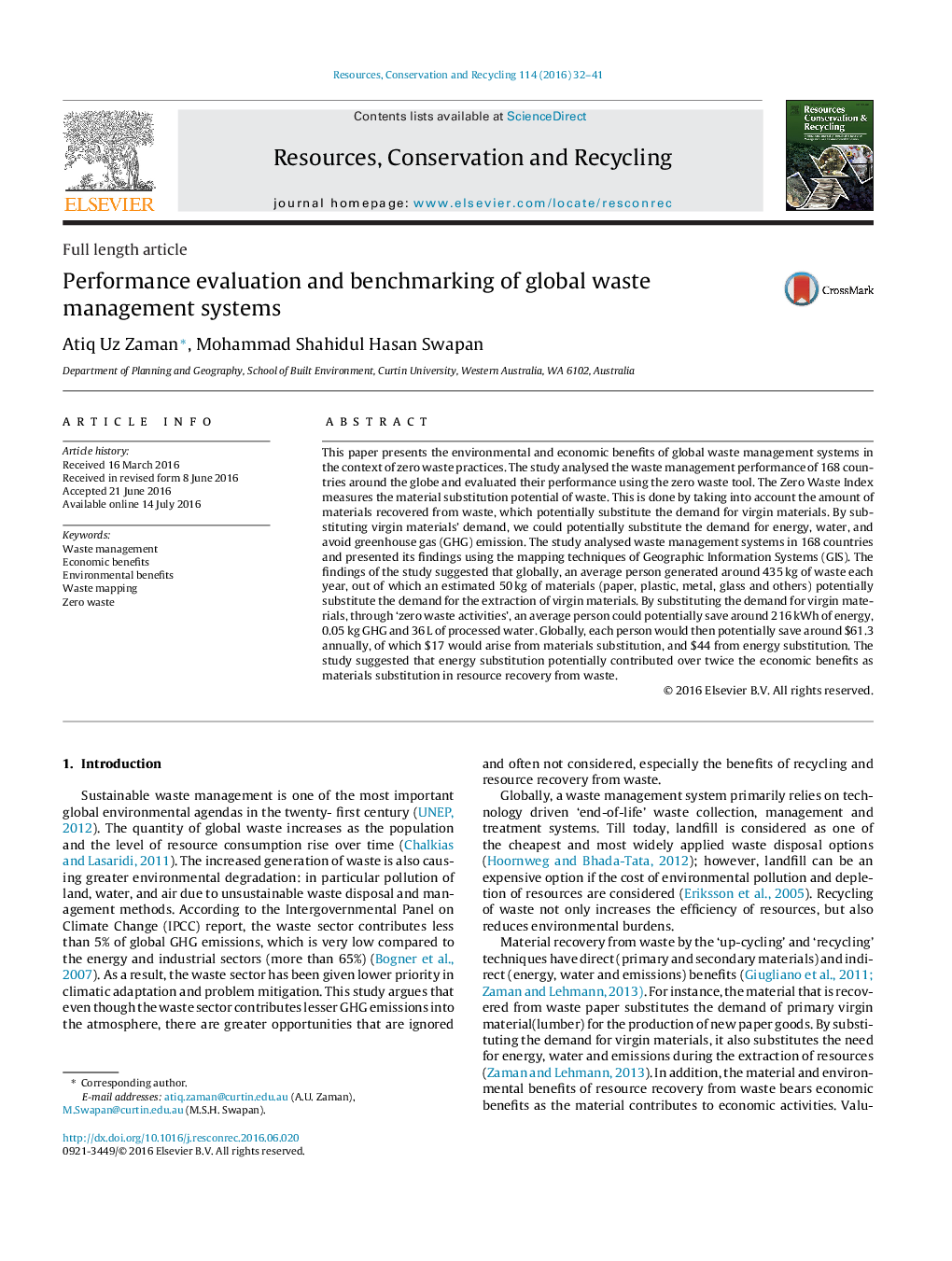| Article ID | Journal | Published Year | Pages | File Type |
|---|---|---|---|---|
| 1062660 | Resources, Conservation and Recycling | 2016 | 10 Pages |
•The study considers a comprehensive global waste data from 168 countries.•The ZW tool is used to evaluate the environmental benefits of waste management.•The GIS mapping is used to present the findings.•The findings are important in benchmarking of global waste management systems.
This paper presents the environmental and economic benefits of global waste management systems in the context of zero waste practices. The study analysed the waste management performance of 168 countries around the globe and evaluated their performance using the zero waste tool. The Zero Waste Index measures the material substitution potential of waste. This is done by taking into account the amount of materials recovered from waste, which potentially substitute the demand for virgin materials. By substituting virgin materials’ demand, we could potentially substitute the demand for energy, water, and avoid greenhouse gas (GHG) emission. The study analysed waste management systems in 168 countries and presented its findings using the mapping techniques of Geographic Information Systems (GIS). The findings of the study suggested that globally, an average person generated around 435 kg of waste each year, out of which an estimated 50 kg of materials (paper, plastic, metal, glass and others) potentially substitute the demand for the extraction of virgin materials. By substituting the demand for virgin materials, through ‘zero waste activities’, an average person could potentially save around 216 kWh of energy, 0.05 kg GHG and 36 L of processed water. Globally, each person would then potentially save around $61.3 annually, of which $17 would arise from materials substitution, and $44 from energy substitution. The study suggested that energy substitution potentially contributed over twice the economic benefits as materials substitution in resource recovery from waste.
